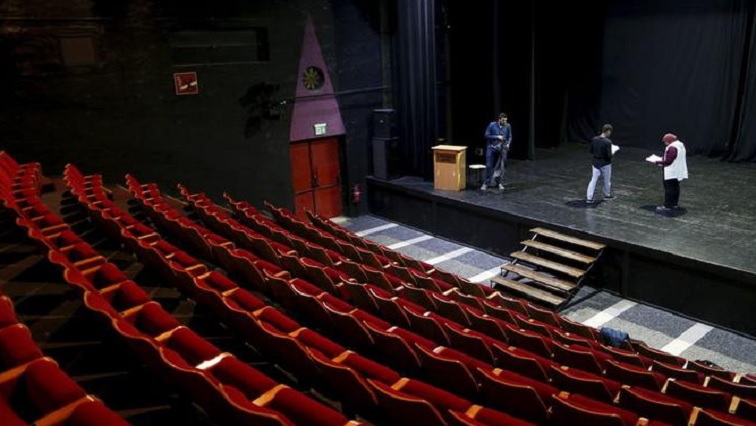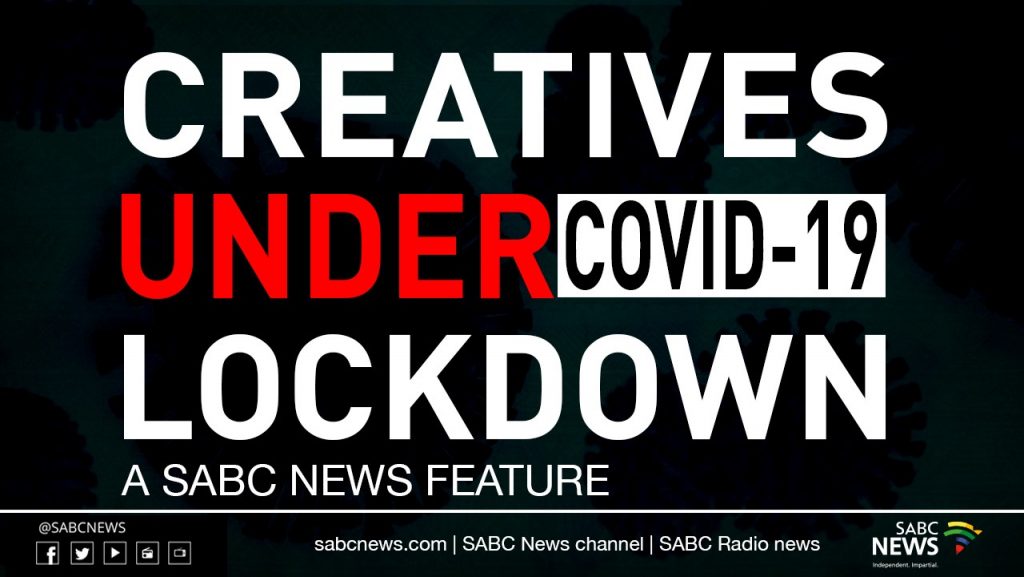Creatives Under Lockdown is a SABC News feature which focuses on issues affecting artists. This week South African Actors’ Guild Chairperson Jack Devnarian and Theatre Benevolent Fund Board Member Gert van Niekerk explain the impact of coronavirus has had on the entertainment industry.

With at least a third of the planet currently on lockdown, many countries are counting their losses in the battle to curb the spread of COVID-19. While the lockdowns are meant to alleviate one problem, they are simultaneously posing other challenges, with major economic activities brought to a halt.
In South Africa, President Cyril Ramaphosa announced on Thursday that the lockdown that started on 27 March would be eased to stage four from 1 May.
This involves easing of regulations to allow some sectors of the economy to operate. While this has brought some relief for some sectors, the entertainment industry continues to bear the brunt of the virus with most regulations affecting it still intact.
On the video below , President Cyril Ramaphosa announces different phases of the lockdown:
With people at home and social distancing still in effect, theatre plays and shoots for television programmes have been cancelled. This has left many artists without bread on the table.
A non-profit organisation representing the legal and economic rights of actors engaged in the audio visual, corporate, radio and commercial production sector, the South African Guild of Actors (SAGA), is concerned about the effect of coronavirus and lockdown restrictions on the industry.
Chairperson Jack Devnarian says since there are no performances, there is no money coming in for artists.
“Actors are generally engaged as freelance performers. We work from gig to gig, earning performance fees for the delivery of our work. We are not protected under Labour Laws and we are unable to derive any benefits from UIF. With the lockdown , all audio visual and theatrical productions are suspended. While the lockdown restrictions are a necessary measure, actors are unable to earn an income during this time. While this is also true for the majority of South Africa’s workforce, freelance actors have no income safety net as we do not qualify for provisions afforded to workers in fixed employment. Banking and insurance institutions categorise freelancers as ‘high risk’ and therefore do not adapt their products to meet our specific needs.”
Food Assistance Fund for artists
To help ease the pain artists are going through, SAGA together with the Theatre Benevolent Fund (TBF) and Personal Managers ‘Association, have started a Food Assistance Fund.
The initiative collects money to supply food for artists in dire need. TBF Board Member Gert van Niekerk says response to the fund has been overwhelming.
“We have managed to collect just over R300 000. People are contributing; we have got quite a few big donations from people like Carolyn Steyn which contributed a huge amount of money. Unfortunately the requests for food vouchers are coming equally fast, so the money is going out quickly. We have only been going now for four days now and we have paid out almost R80 000.”
A very big thank you to @Carolyn_Steyn who has made a personal donation of R250,000 to the @TBFofSA to help provide food for artists who are in need in the form of food vouchers.
— Timothy Moloi (@TimothyMoloi) April 21, 2020
TBF ‘s Gert van Niekerk explains how the Food Assistance Fund works in the audio below:
Government’s role in assisting artists
Government has also stepped in to mitigate the effect of the virus on the industry. In March, Minister Nathi Mthethwa announced a R150 million relief fund to this effect.
Media Release: Department of Sport, Arts and Culture: Progress Regarding The Applications For The COVID-19 RELIEF FUND pic.twitter.com/LrH5qF1Xp4
— Nathi Mthethwa (@NathiMthethwaSA) April 17, 2020
President Cyril Ramaphosa on 21 April reiterated that support will be extended to artists and athletes. However, he did not outline the extent to which this will be done .
“The Minister of Sports, Arts and Culture, Minister Nathi Mthethwa announced the department’s income relief strategy on 25 March, offering financial assistance to those who lost income through the cancellation of productions. The deadline for applications was 6 April 2020 and there is still no evidence of any relief payments. On Friday 17 April, the minister announced the adjudication panel that will assess the thousands of applications received, so we are hopeful that the administration of the minister’s strategy does not itself become an obstacle to the department’s relief effort,” says Devnarian.
Impact on economy
As of two years ago the creative industry contributed on average 3% to the Gross Domestic Product (GDP), which is a figure around R64 billion. The industry employs about 440 000 people and contributes about R24 billion in taxes.
Head of Strategic Engagement at the South African Institute of Race Relations, Sara Gon, says the pandemic will have severe consequences to the industry’s contribution towards the GDP.
“I think the effect is going to be huge because most people in the arts industry require audiences to view their work or to sit and attend play ect..This can be off-set to some extent by things like You Tube and social media in general where people can play music, sing or perform and still reach an audience either for free or there are systems to charge them. One of the sectors that are doing quite well are comedians who are earning quite well by being sponsored. But this is very much in the minority and if you don’t have a smart phone and internet access you are really going to struggle. Getting out of the economic quagmire once the lockdown is over is likely to be very slow because the people who would spend money on you, don’t have enough money to spend on arts and culture.”
Although it remains unclear when life will go back to normal, people in the industry are trying to find different ways to ensure their work reaches their audience.
Theatre lovers, would you watch a play online? We are trying to take decisions about The House of Truth. pic.twitter.com/GGfV5g5FrB
— Dr Siphiwo Mahala (@SiphiwoMahala) April 18, 2020
Below is a graphic which shows the levels of easing the lockdown regulations:







